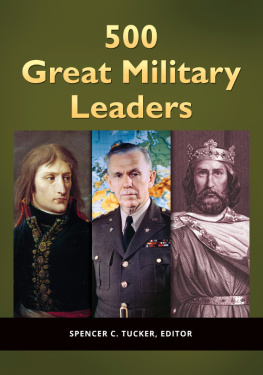

Copyright 2016 by ABC-CLIO, LLC
All rights reserved. No part of this publication may be reproduced, stored in a retrieval system, or transmitted, in any form or by any means, electronic, mechanical, photocopying, recording, or otherwise, except for the inclusion of brief quotations in a review, without prior permission in writing from the publisher.
Library of Congress Cataloging-in-Publication Data
Names: Tucker, Spencer, 1937 editor.
Title: World War II : the definitive encyclopedia and document collection / Spencer C. Tucker, editor ; Paul G. Pierpaoli Jr., associate editor ; Timothy C. Dowling, assistant editor ; William H. Van Husen, assistant editor ; David T. Zabecki, assistant editor ; Priscilla Roberts, documents editor ; foreword by Gerhard L. Weinberg.
Other titles: Encyclopedia of World War II.
Description: Santa Barbara, California : ABC-CLIO, LLC, [2016] | Includes bibliographical references and index.
Identifiers: LCCN 2015046300 | ISBN 9781851099689 (set : alk. paper) | ISBN 9781440845932 (volume 1 : alk. paper) | ISBN 9781440845949 (volume 2 : alk. paper) | ISBN 9781440845956 (volume 3 : alk. paper) | ISBN 9781440845963 (volume 4 : alk. paper) | ISBN 9781440845970 (volume 5 : alk. paper) | ISBN 9781851099696 (ebook)
Subjects: LCSH: World War, 19391945Encyclopedias. | World War, 19391945Sources. | History, Modern20th centuryEncyclopedias.
Classification: LCC D740 .E516 2016 | DDC 940.5303dc23 LC record available at https://lccn.loc.gov/2015046300
ISBN: 978-1-85109-968-9 (set)
ISBN: 978-1-4408-4593-2 (vol. 1)
ISBN: 978-1-4408-4594-9 (vol. 2)
ISBN: 978-1-4408-4595-6 (vol. 3)
ISBN: 978-1-4408-4596-3 (vol. 4)
ISBN: 978-1-4408-4597-0 (vol. 5)
ISBN: 978-1-85109-969-6 (ebook)
20 19 18 17 16 1 2 3 4 5
This book is also available as an eBook.
ABC-CLIO
An Imprint of ABC-CLIO, LLC
ABC-CLIO, LLC
130 Cremona Drive, P.O. Box 1911
Santa Barbara, California 93116-1911
www.abc-clio.com
This book is printed on acid-free paper 
Manufactured in the United States of America
For Major General David T. Zabecki, USA retired, PhD, distinguished military historian, exemplary colleague, and friend.
About the Editors
Spencer C. Tucker, PhD, has been senior fellow in military history at ABC-CLIO since 2003. He is the author or editor of 56 books and encyclopedias, many of which have won prestigious awards. Tuckers last academic position before his retirement from teaching was the John Biggs Chair in Military History at the Virginia Military Institute in Lexington. He has been a Fulbright scholar, a visiting research associate at the Smithsonian Institution, and, as a U.S. Army captain, an intelligence analyst in the Pentagon. His recently published works include World War I: The Definitive Encyclopedia and Document Collection, Wars That Changed History: 50 of the Worlds Greatest Conflicts, and U.S. Conflict in the 21st Century: Afghanistan War, Iraq War, and the War on Terror, all published by ABC-CLIO.
Priscilla Mary Roberts received her PhD from Kings College, Cambridge. She is an associate professor of history at the University of Hong Kong and is also the universitys honorary director of the Centre of American Studies. Dr. Roberts has received numerous research awards, including a Fulbright Fellowship to George Washington University in 2003. Well published in 20th-century diplomatic and international history, she is the author, editor, or coeditor of 24 books, among them The Cold War; Window on the Forbidden City: The Chinese Diaries of David Bruce, 19731974; Behind the Bamboo Curtain: China, Vietnam, and the World beyond Asia; and Lord Lothian and Anglo-American Relations, 19001940.
ABC-CLIO M ILITARY H ISTORY A DVISORY B OARD M EMBERS
D R. D AVID C OFFEY
A SSOCIATE P ROFESSOR AND C HAIR
D EPARTMENT OF H ISTORY AND P HILOSOPHY
U NIVERSITY OF T ENNESSEE AT M ARTIN
D R. J AMES M ATRAY
P ROFESSOR AND C HAIR OF H ISTORY
D EPARTMENT OF H ISTORY
C ALIFORNIA S TATE U NIVERSITY , C HICO
D R. J ACK M C C ALLUM
A DJUNCT P ROFESSOR
D EPARTMENT OF H ISTORY AND G EOGRAPHY
T EXAS C HRISTIAN U NIVERSITY
D R. J USTIN D. M URPHY
D IRECTOR , A CADEMY OF F REEDOM ;
B RAND P ROFESSOR OF H ISTORY
D EPARTMENT OF H ISTORY ,
P OLITICAL S CIENCE, AND G EOGRAPHY
H OWARD P AYNE U NIVERSITY
D R. J IM P IECUCH
A SSISTANT P ROFESSOR OF H ISTORY
D EPARTMENT OF H ISTORY
K ENNESAW S TATE U NIVERSITY
D R. C AROL R EARDON
P ROFESSOR OF M ILITARY H ISTORY
D EPARTMENT OF H ISTORY
P ENNSYLVANIA S TATE U NIVERSITY
D R. P RISCILLA M ARY R OBERTS
A SSOCIATE P ROFESSOR OF H ISTORY ,
S CHOOL OF H UMANITIES
H ONORARY D IRECTOR ,
C ENTRE OF A MERICAN S TUDIES
U NIVERSITY OF H ONG K ONG
D R. J AMES H. W ILLBANKS
G ENERAL OF THE A RMY G EORGE C. M ARSHALL
C HAIR OF M ILITARY H ISTORY AND D IRECTOR ,
D EPARTMENT OF M ILITARY H ISTORY U.S. A RMY
C OMMAND AND G ENERAL S TAFF C OLLEGE ,
F ORT L EAVENWORTH
D R. D AVID T. Z ABECKI
M AJOR G ENERAL
A RMY OF THE U NITED S TATES , R ETIRED
Contents
List of Entries
List of Maps
General Maps
Entry Maps
Foreword
After the huge number of casualties and the massive destruction in what was called the Great War before it came to be referred to as World War I, most people in most countries were quite certain that one such disaster was more than enough for the century, perhaps for all time. The commemoration of the signing of the armistice on November 11, 1918, could be seen as one indication of this feeling. On all other days of the year, people in most communities in Europe and some in North America, Australia, New Zealand, and other parts of the world could visit local memorials erected in innumerable towns with the names of those who had lost their lives in that conflict. In the European countries that had participated in the war it would afterward have been quite difficult to find a family in which no members had been killed or wounded, and that search would have had to exclude my own family in which my father had been wounded serving in the German Army during the fighting in what became Latvia after the war.
The fact that after the armistice and the peace treaties there would be local struggles between individual countries that turned into open hostilities, internal quarrels that rose to the level of civil wars, and the resumption of prior expansionist efforts by some countries that also produced open conflicts is not terribly surprising given the troubles and ambitions in the international arena and within some states. An example of the first category would be the war between the Soviet Union and Poland in 19191921. The Spanish Civil War of 19361939 is an example of the second category, and the Italian conquest of Abyssinia/Ethiopia and Japans seizure of Manchuria in 1931 and open war with China starting in 1937 are examples of the third category. The suffering and destruction caused by these conflicts and the legacies of hatred they left behind were indeed substantial. But how could the world essentially as a whole descend into another global war that in dimensions and effects substantially exceeded those of the war of 19141918?
Of those defeated in the prior great conflict, the Austro-Hungarian and Ottoman Empires had dissolved, while the czarist Russian Empire had been displaced after two revolutions by a Bolshevik regime that supported communist parties in many countries but was primarily concerned about a possible capitalist coalition against itself. Germany, though defeated, had been left united, was occupied by Allied forces only in part and that only for some years, and in spite of having had to return some pieces of territory to those from whom they had been taken was in a relatively stronger position in Europe than before 1914, since there were now small countries rather than powerful empires on its southern and eastern borders. There were, however, several developments in the Germany of the postwar years that contributed to the new descent into worldwide conflict.
Next page
![Spencer C. Tucker World War II [5 Volumes]: The Definitive Encyclopedia and Document Collection](/uploads/posts/book/128138/thumbs/spencer-c-tucker-world-war-ii-5-volumes-the.jpg)
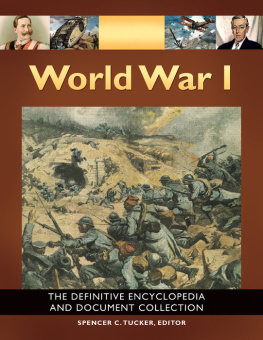
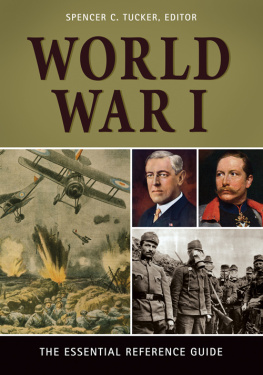
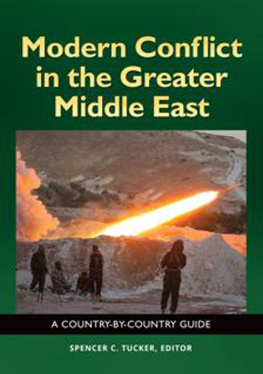

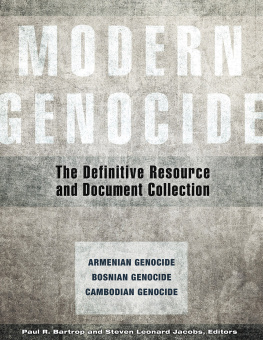
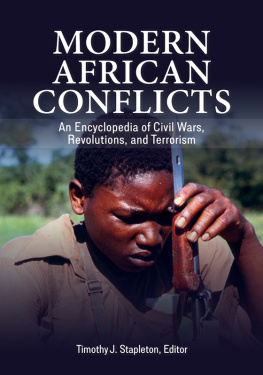
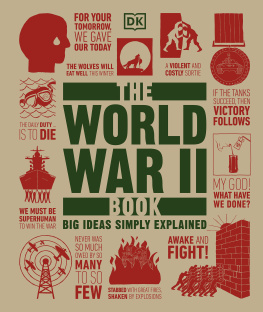
![James Francis LePree Ph.D. (editor) - The Byzantine Empire [2 volumes]: A Historical Encyclopedia](/uploads/posts/book/296844/thumbs/james-francis-lepree-ph-d-editor-the-byzantine.jpg)
![Florin Curta (editor) - Great Events in Religion [3 volumes]: An Encyclopedia of Pivotal Events in Religious History](/uploads/posts/book/295713/thumbs/florin-curta-editor-great-events-in-religion-3.jpg)
